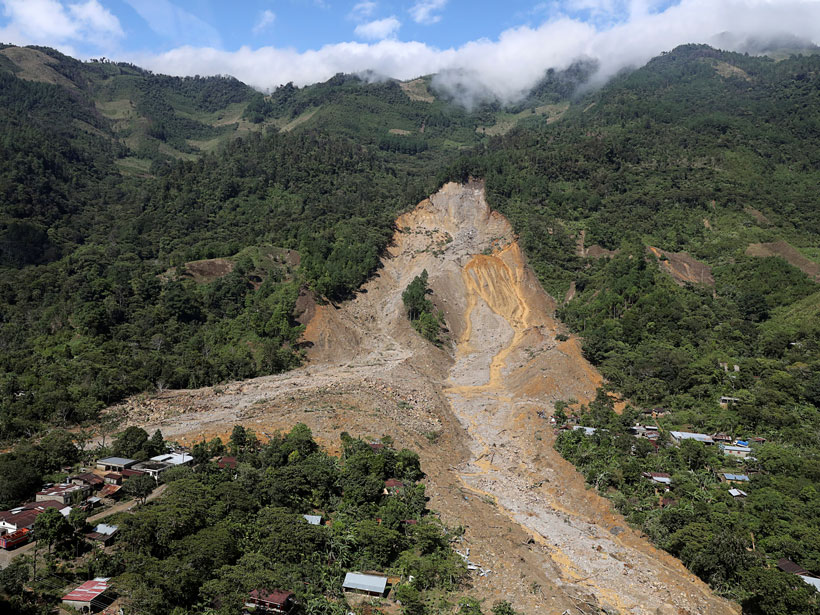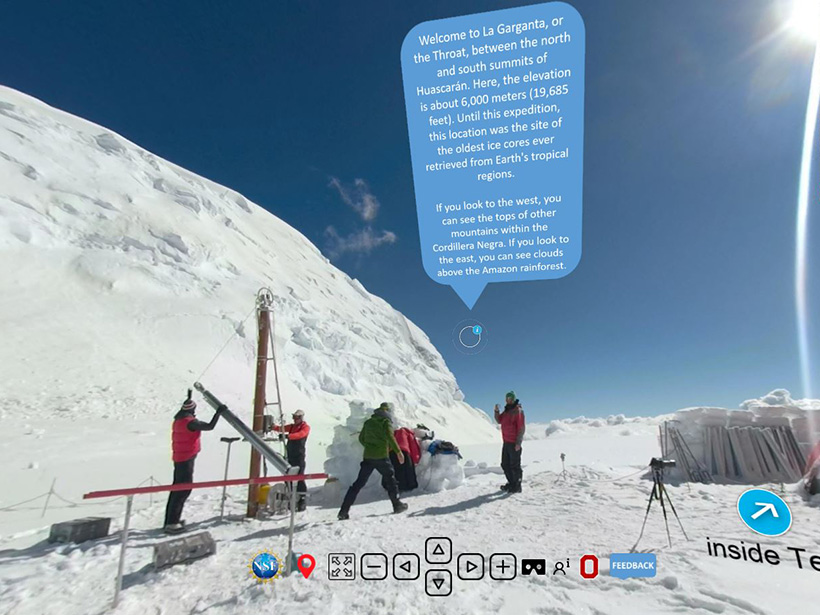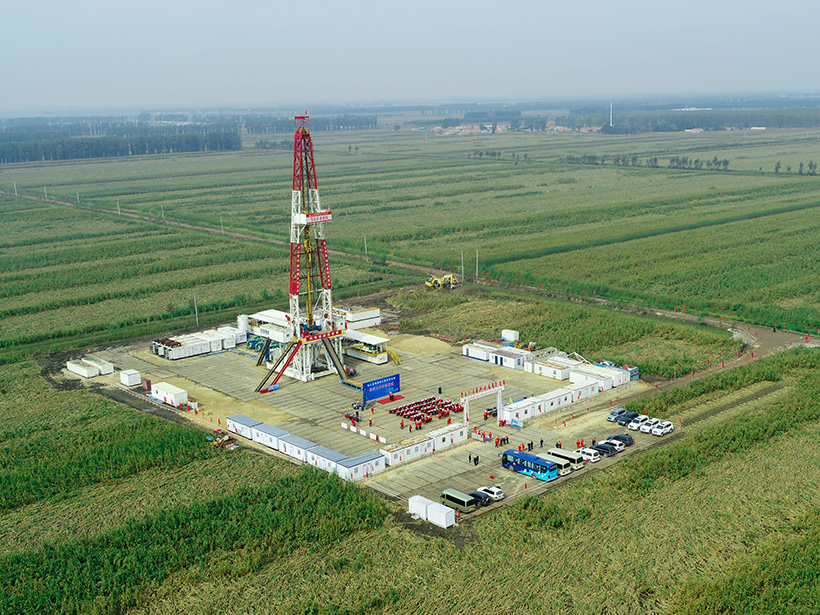Improving our understanding of hazards posed by future large earthquakes on the Cascadia Subduction Zone requires advancements in the methods and sampling used to date and characterize past events.
Science Updates
Undertaking Adventure to Make Sense of Subglacial Plumes
Novel observations and inventive analyses of glacial discharge in Greenland have revealed new insights into the irregular and chaotic nature of ice-ocean interactions at glacial calving fronts.
Wildfires Are Threatening Municipal Water Supplies
Climate change is driving an increase in catastrophic wildfires; consumers see, smell, and taste the effects in their water. Water utilities must prepare for worse times ahead.
Satellites Support Disaster Response to Storm-Driven Landslides
Extreme precipitation can trigger deadly landslides. Satellite-based tools provide regional perspectives on landslide hazards, help assess risks in near-real time, and guide emergency responses.
Virtual Tours Through the Ice Using Everyday Tools
The Byrd Polar and Climate Research Center is training scientists to create immersive virtual field experiences of glaciers, sea ice, and snow.
NEON Lights a Path for Sustained Ecological Observations
Resources and data offered by the National Ecological Observatory Network are supporting researchers investigating critical ecosystem changes across the country.
Seafloor Seismometers Look for Clues to North Atlantic Volcanism
Did the mantle plume that fuels Iceland’s volcanoes today cause eruptions in Ireland and Great Britain long ago? A new project investigates, while also inspiring students and recording whale songs.
A Tectonic Shift in Analytics and Computing Is Coming
Artificial intelligence combined with high-performance computing could trigger a fundamental change in how geoscientists extract knowledge from large volumes of data.
Taking Flight to Study Clouds and Climate
A new mission involving synchronized aircraft observations is collecting data vital for improving our understanding of how aerosol particles and clouds influence each other.
An Unbroken Record of Climate During the Age of Dinosaurs
A scientific drilling project in China has retrieved a continuous history of conditions from Earth’s most recent “greenhouse” period that may offer insights about future climate scenarios.










